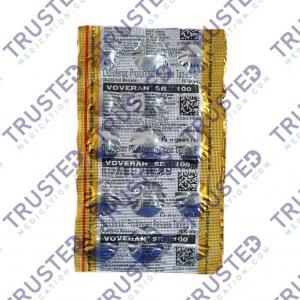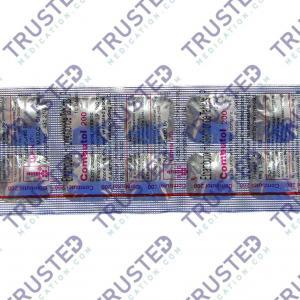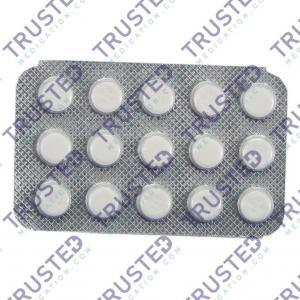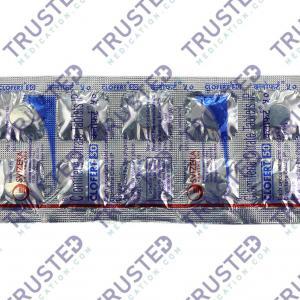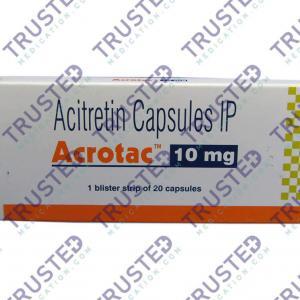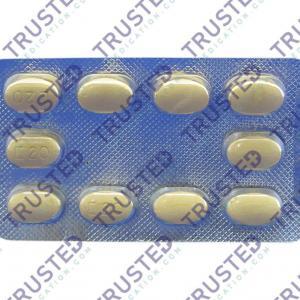
Felodipine is a medication primarily prescribed for the treatment of high blood pressure and angina pectoris or chest pain. High blood pressure is a common condition that approximately one in every three adults in the US has high blood pressure. You can have high blood pressure for years without any symptoms. Most people with high blood pressure have no symptoms even if the blood pressure reaches a dangerously high level. However, the long-term force of the blood on the artery wall is high enough that it may cause health problems.
Without treatment, high blood pressure or hypertension can cause damages to the heart, blood vessels, kidneys and other organs in the body which may lead to stroke, heart attack, heart failure, kidney problems and many others.
Felodipine is a calcium-channel blocker or CCB that relaxes the blood vessels and increases the supply of blood and oxygen to the heart while also reducing the workload of the heart. It works by preventing the muscle cells particularly in the blood vessels and the heart from contracting due to too much calcium. Too much calcium in the blood can increase the blood pressure that may lead to some abnormalities that change the rhythm of the heart, adding strain to it and the muscle cells in the blood vessels to contract.
This medicine prevents the calcium from being released into the muscle cells in the small arteries which causes the smooth muscle in the arteries to relax and to dilate or expand. When the muscle in the arteries relaxes, blood pressure is reduced. This makes it easier for the heart to pump blood. As a result, the heart needs less oxygen. Reducing the need for more oxygen prevents chest pain or angina pectoris.
When and How to Use Felodipine
Felodipine comes in a tablet form that you have to take orally. Your dose depends on how well your blood pressure is controlled and how well you respond to the initial treatment. It is vital therefore that you must follow your doctor’s instruction.
The initial recommended dose is 2.5 mg a day. Your doctor may increase your dose up to 10 mg a day if your dose isn’t working well enough. If your blood pressure gets too low, your doctor may lower your dose to 2.5 mg a day.
Since it comes as a sustained released tablet, you need to swallow it whole with plenty of fluid. Do not crush or chew the tablet. Take Felodipine without food since food may reduce its absorption. If it upsets your stomach, you may take it with a light meal but do not take this medicine with a meal in high fat. If you forget to take your dose, take it as soon as you remember. As much as possible take it around the same time each day.
What to know before taking Felodipine
- Felodipine may cause dizziness and fatigue. Avoid performing potentially hazardous activities like operating machinery or driving.
- Use with caution in:
- Patients with a decreased liver function
- Patients with a history of heart failure or a weak heart
- Patients with a hereditary blood disorder known as porphyria
- Elderly patients
- Patients with a serious defect in the heart’s electrical message pathways
- Do not use in:
- People with an uncontrolled heart failure
- People with aortic stenosis, a narrowing of the main artery of the heart which prevents it from opening fully. This blocks the flow of blood from your heart to your body.
- People with angina pectoris that is increasing in duration, severity and frequency
- Women who are pregnant or breastfeeding
- Children who are below 18 years of age
- People who are having a heart attack
- People who are allergic to other calcium-channel blockers
- People with rare hereditary problems of galactose intolerance, glucose-galactose malabsorption or Lapp lactase deficiency
Possible Side Effects of Felodipine
Felodipine may cause some side effects along with its intended effects. The following are side effects that may occur at the start of the treatment:
- Headache
- Fatigue
- Dizziness
- Flushing
- Palpitation
- Low blood pressure
- Ringing noise in the ears
- Swollen ankles and feet
Other reported side effects are:
- Fainting
- Fever
- Erectile dysfunction
- Low blood pressure
- An increased need to pass urine
- Itching or rash
- Excessive fluid retention
- Upper respiratory tract reactions
- Muscle and joint pain
- Low blood pressure
- Pins and needles sensation
- Worsening of chest pain or angina pectoris
- Disturbance of the gut such as diarrhea, nausea and vomiting
- Mild swelling of the gums that can be treated with dental care
The side effects listed are not complete. If you will experience any unusual but serious side effects seek medical help as soon as possible. Serious side effects like anaphylaxis or a severe allergic reaction are rare and may happen in less than 1 in 1000 people.
Getting the Best Result from Felodipine
- Do not drink grapefruit while taking this medicine as it can increase the level of Felodipine in your blood and increase your chances of getting unwanted side effects.
- Do not chew or crush the tablet. Swallow the tablet whole.
- Continue taking your medication even if you feel well. Stopping it too suddenly may cause your blood pressure to spike all of a sudden.
- Felodipine may have an additive effect when taken along with other antihypertensive medications. If the combination of medications can lower your blood pressure too much causing dizziness, lie down until the symptoms pass. Inform your doctor right away if you frequently get dizzy while taking this medicine along with other blood pressure lowering medications.
- Medicines like Prednisolone, contraceptive pills like estrogen and non-steroidal anti-inflammatory drugs like ibuprofen and Diclofenac may reduce the blood pressure-lowering effects of Felodipine.
- If you experience any chest pain while taking this drug, discontinue your dose and consult with your doctor right away.
- Taking this medicine along with antibiotics like clarithromycin, erythromycin, ketoconazole, itraconazole and antiviral drugs like protease inhibitors for HIV infection may decrease the breakdown of Felodipine by the liver.

